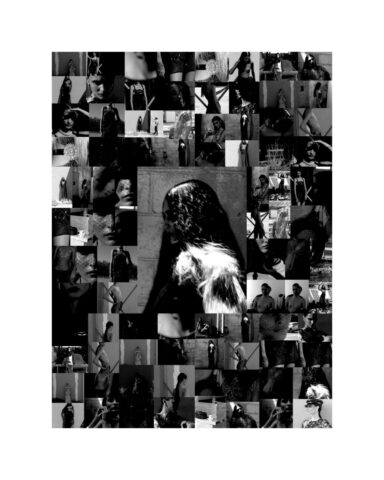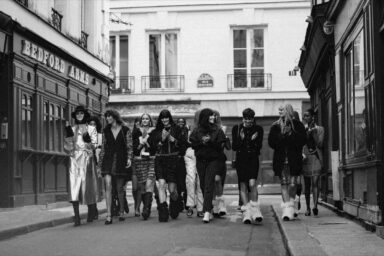For the farewell ceremony of her sixteen years at the German chancellery, the former ‘girl from the East’ chose a surprising repertoire that also includes a piece by Nina Hagen, the ‘godmother of German punk’, one of the most provocative and controversial singers in German history
Text: Domenico Costantini
Angela Merkel chose her own playlist for her farewell ceremony on the evening of Thursday, December 2, where she received military honours in a ceremony marking the end of her tenure as the country’s political leader.
She decided to include “Grosser Gott, wir loben Dich” (Holy God, we praise your name), an 18th-century Christian hymn attuned to the portrayal of a Protestant pastor’s daughter, and the romantic ballad “Für mich soll’s rote Rosen regnen” (It should rain red roses for me) by blond Hildegard Knef, which politely speaks of youthful dreams and the desire for nonconformity, as well as the piece with which Nina Hagen revealed herself to the restless youth of the two Germanies in 1974, “Du hast den Farbfilm vergessen” (You have forgotten the colour film).
And some said: what a scandalous choice. But no, there is a lot of Merkel’s leadership in Nina, who can well be considered the hidden face, the secret model of a smart, passionate but composed girl like Angela, to whom Hagen’s provocative singing sorties must have seemed irresistible, with her deliberately loud voice.

The two girls were practically the same age – Angela was born in 1954, Nina in 1955 – and both had grown up in the bizarre society of East Germany, where Hagen had immediately become the incarnation of the dissident spirit and the desire to break away. At the age of twenty, Nina was expatriated to West Germany, following her stepfather, Wolf Biermann, a very popular chansonnier and non-aligned intellectual. She then set out to cultivate her rock dream in the punk London of the time, joining the Sex Pistols and Vivienne Westwood and meeting with international success as an icon of the rough, unconventional feminism that had blossomed in the heart of a repressed nation.

Nina Hagen
But a couple of years earlier, at only 17 years of age, Nina had already become someone in her own country with the song to which she now pays representative homage. In pure schlager style, noisy, vaudeville and camp, “Du hast den Farbfilm vergessen” tells of a girl’s angry protest to Micha, her boyfriend, who, leaving for vacation, has brought only black and white film with him. So she won’t be able to show the wonder of the island of Hiddensee they are visiting and no one will believe her tales of how beautiful things are out there.
The piece slipped through the net of state censorship in the GDR (German Democratic Republic) and the boys of the time did not miss the satire against the social greyness around them. Sensitive materials in the formation of a soul determined to marry the speculative vocation to the obstinacy in the achievement of objectives. And today, at the end of the race, a sacrosanct description of her “as we were” and a look of affection for those who lived with her the same experience of liberation.
If you want to learn more about Angela Merkel, we recommend “Angela Merkel. La donna che ha cambiato la storia”, published by Rizzoli, 2021. Written by Massimo Nava, journalist, war correspondent and writer of essays and novels. An invaluable book by one of the greatest experts on contemporary Germany, investigating the folds of history, on the trail of a “little girl from the East” destined to become the first woman to lead the German Chancellery.



